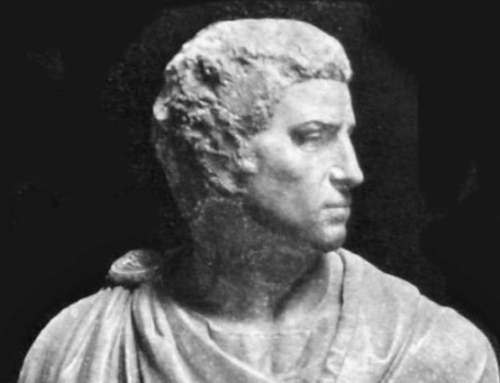 The teaching and inculcating of virtue—rooted in and derived from the Judeo-Christian understanding of the Natural Law—should be the purpose of a liberal arts education. Virtue remains a difficult concept for the modern mind to grasp, as the American radicals of the 1960s and 1970s viewed it as elitist and oppressive, and the radical leaders of much of the world’s population annihilated their own, claiming them to be “bourgeois.” Even when we Americans come close to discussing virtue today, we usually poorly substitute the term “values.”
The teaching and inculcating of virtue—rooted in and derived from the Judeo-Christian understanding of the Natural Law—should be the purpose of a liberal arts education. Virtue remains a difficult concept for the modern mind to grasp, as the American radicals of the 1960s and 1970s viewed it as elitist and oppressive, and the radical leaders of much of the world’s population annihilated their own, claiming them to be “bourgeois.” Even when we Americans come close to discussing virtue today, we usually poorly substitute the term “values.”
Virtue, according to the ancients, involved duty, loyalty, mercy, justice, and, ultimately, being willing to lay down one’s life for one’s beliefs, the greatest of all sacrifices. One understood that one lived in a community and worked for the common good (the res publica). Plato defined virtue as “conformity to a standard of morality.” The great Roman Senator and republican Marcus Cicero wrote in his On Duties that one “must believe that it is characteristic of a strong and heroic mind to consider trivial what most people think glorious and attractive, and to despise those things with unshakable, inflexible discipline.” Furthermore, he stressed, one must “endure reverses that seem bitter” and “to endure them so that you depart not one inch from your basic nature, not a jot from a wise man’s self respect.” John Adams, certainly one of the greatest of the American Founding Fathers, differed little in his understanding of virtue: it is, he argued “a positive passion for the public good.” Further, it can serve as “the only Foundation of Republics.”
The Christian understanding of virtue parallels the classical understanding nicely, though it focuses on grace rather than will. St. Paul tells us in his first letter to the Corinthians that the three great Christian virtues are Faith, Hope, and Charity. God distributes these, then, according to His Will, through His Economy of Grace. “For just as in a single human body there are many limbs and organs, all with different functions,” St. Paul wrote, “so all of us, united with Christ, form one body, serving individually as limbs and organs to one another.” Gifts such as teaching or speaking “differ as they are allotted to us by God’s grace, and must be exercised accordingly.” Our gifts should be for the common good, the Body of Christ—that is, the Church.
When we consider the various ideologies of the twentieth century and, unfortunately, already wreaking havoc in the first twenty-five months of the twenty-first century, a return to a true understanding of the liberal arts and a reawakening of virtue seems the only viable alternative to such terror. Many figures in the western tradition have led the way: Moses, Aristotle, Cicero, Jesus Christ, St. Paul, St. Augustine, St. Boniface, St. Thomas Aquinas, George Washington, John Adams, Abraham Lincoln, Russell Kirk, and Pope John Paul II. They have left us a profound moral and intellectual patrimony. We would do well to follow their lead and heed their advice. If we had listened, and if the western world had possessed a better understanding of liberal arts tradition and virtue in the twentieth century, governments may not have murdered nearly 200 million of their own citizens. As it is, the killings fields, the holocaust camps, and the gulags of the previous century remain a silent monument to the arrogance of unrestrained man, the insatiable lust for power, and the depravity of all ideologies. Certainly, all twentieth-century radicals did their best to destroy virtue.
Our society must recognize that the only real alternative to the follies of the twentieth century is a return to the liberal arts, the teaching of virtue, and an acknowledgement of the profundity of the Incarnation, the Death, and Resurrection of Christ. As John Paul II explained in 1999, “The mystery of the Incarnation has given a tremendous impetus to man’s thought and artistic genius. Precisely by reflecting on the union of the two natures, human and divine, in the person of the Incarnate Word, Christian thinkers have come to explain the concept of person as the unique and unrepeatable centre of freedom and responsibility, whose inalienable dignity must be recognized. This concept of the person has proved to be the cornerstone of any genuinely human civilization.”
Our mission should be to return education to right reason, first principles, and true justice. Indeed, a liberal arts education teaches men and women that they are made in the Image of the Creator, flawed, but redeemed by Eternity entering Time, the Incarnation, His death, and His resurrection. Men and women, despite all limitations and flaws, are, at least from any honest perspective, almost infinitely complex. Each is born in a certain time and a certain place for a certain—albeit most likely unknown—purpose. He or she is meant to use his or her gifts for the good of the community—a community not only rooted in a specific time and space, but also in the human community, across time and space, fulfilling the eternal contract between the living, the dead, and the unborn. One may become fully human only by recognizing these things. And, through grace, one sanctifies one’s self by habituating the seven virtues: prudence, fortitude, justice, temperance, faith, hope, and, most importantly, love.
Books on the topic of this essay may be found in The Imaginative Conservative Bookstore.







Leave A Comment